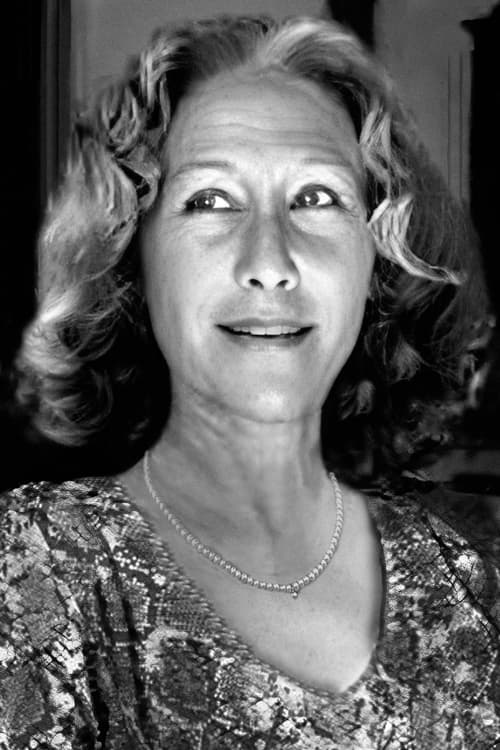
Anne-Marie Miéville
Рождение : 1945-11-11, Lausanne, Switzerland
История
Anne-Marie Miéville, born November 11, 1945 in Lausanne, is a filmmaker, director, producer, screenwriter, actress and writer from Vaud. Anne-Marie Miéville works as a photographer and is the manager of a bookstore. In the 1960s, she also recorded two variety discs for Barclay, on songs by Jean-Jacques Debout. Then in 1972, she met Jean-Luc Godard in Paris, who became her companion until his death in 2022. Initially, from 1973 to 1994, she collaborated with this filmmaker as a photographer, screenwriter, editor, co-director and artistic director for some of her/their films. Then in 1983, she directed her first short film, "How Can I Love", and, a year later, a second short film, "Le Livre De Marie".
Since then, she has continued to make films. Through her cinematographic stories, she questions, with a singularity of tone, love, time, the meaning of things, ... Her first feature film is called: "My Dear Subject" and was released in 19883. 1994 "Lou Didn't Say No".
Still in 1994, Anne-Marie Miéville published "Histoire Du Garçon", a text retracing the career and life of her brother Alain, who died accidentally in 1993. In 1996/1997, a new feature film was broadcast, "Nous Sommes Tous Encore Here". Then in 2000, "Après La Réconciliation" in which she appeared, accompanied by Claude Perron, Jacques Spiesser, Jean-Luc Godard and Xavier Marchand.
In 2002, she wrote "Images In Words", short texts published by Farrago, which the publisher wrote were "a series of fixed shots, short films of writing. Strictly speaking, it is not a question of news, but rather of indescribable moments, fleeting perfumes of images, where it would be a question of filming with words”.

Director
A special version of ‘Dans le noir du temps’ for viewers in Ramallah and the Gaza Strip.

Director
Cats laying, moving, leading a kind of interlude directed by Anne-Marie Miéville.
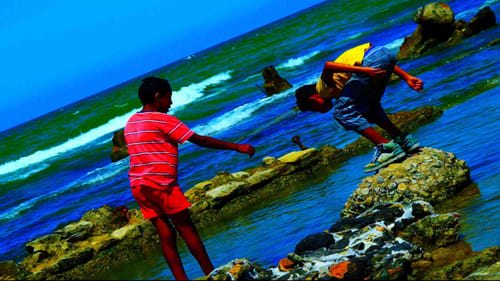
Narrator (voice)
Фильм-отражение современного Арабского мира.

Rue du Temple, Rolle, Switzerland, June 2013.

Director
Short foundfootage film by Anne-Marie Miéville.

Director
Director Jean-Luc Godard reflects in this movie about his place in film history, the interaction of film industry and film as art, as well as the act of creating art.

Director
Jean-Luc Godard, and Anne-Marie Miéville Four Short Films

Narrator (voice)
Jean-Luc Godard, and Anne-Marie Miéville Four Short Films

Director
Short film by Ann-Marie Mieville on Godard's model for his exhibition "Collages de France"
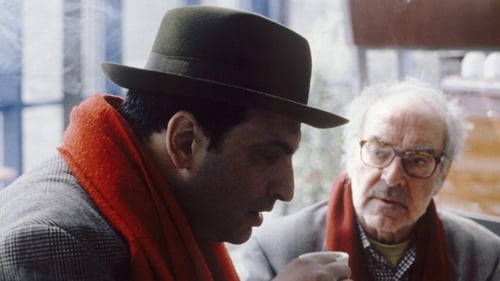
Art Direction
Еврейская девушка, журналистка-израильтянка, приезжает на дискуссионный симпозиум, во время которого будет обсуждаться палестино-израильская война. Но не только этой темы коснется дискуссия и сюжетная линия фильма — речь пойдет о более глобальных вещах. О культурных различиях, о искусстве и политике, о том, что разделяет людей и в итоге приводит к трагедиям мирового масштаба…

Screenplay
Collection of short films the summaries of which include; a foreign man moving to Italy, getting married and having a child; a four split scene short involving plot-less images of old people with television sets for heads, a beautiful woman having sex, and overall confusion; and an old man reminiscing over his youth.
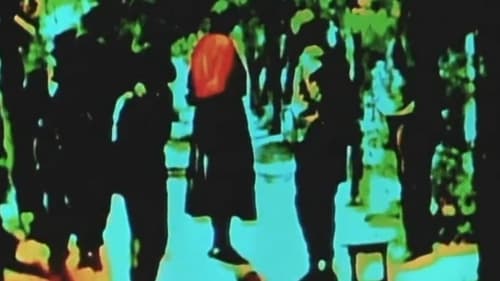
Writer
Conceived as a reflection on the theme of time at the turn of the millennium, "Dans le noir du temps" functions as a Pandora’s box which hides all the horrors of the world: the last moments of youth, fame, thoughts, memory, love, silence, history, fear, eternity and, of course, cinema.
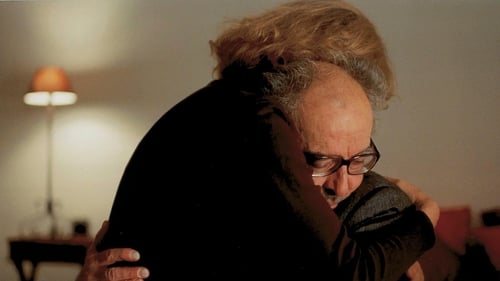
Editor
An elderly couple and a younger man and woman follow up failed seduction attempts with conversation about love and the meaning of life.

La première femme
An elderly couple and a younger man and woman follow up failed seduction attempts with conversation about love and the meaning of life.

Screenplay
An elderly couple and a younger man and woman follow up failed seduction attempts with conversation about love and the meaning of life.

Director
An elderly couple and a younger man and woman follow up failed seduction attempts with conversation about love and the meaning of life.

Editor
Essay on the influence of arts at the end of the 20th century produced by the Museum of Modern Art.

Writer
Essay on the influence of arts at the end of the 20th century produced by the Museum of Modern Art.

Director
Essay on the influence of arts at the end of the 20th century produced by the Museum of Modern Art.

Screenplay
Two housewives discuss philosophical themes (actually an updated dialogue between Plato and Socrates) while doing the house work. The husband of one of them rehearses his part in a theatrical play, reading a 20th century philosophical text about totalitarianism.

Editor
Two housewives discuss philosophical themes (actually an updated dialogue between Plato and Socrates) while doing the house work. The husband of one of them rehearses his part in a theatrical play, reading a 20th century philosophical text about totalitarianism.

Director
Two housewives discuss philosophical themes (actually an updated dialogue between Plato and Socrates) while doing the house work. The husband of one of them rehearses his part in a theatrical play, reading a 20th century philosophical text about totalitarianism.

Editor
At a lakeside hotel, Michel Piccoli discusses the centennial of cinema with Jean-Luc Godard. Godard asks why should cinema's birthday be celebrated when the history of film is a forgotten subject. Through the remainder of his hotel stay, Piccoli tests Godard's hypothesis.

Director
At a lakeside hotel, Michel Piccoli discusses the centennial of cinema with Jean-Luc Godard. Godard asks why should cinema's birthday be celebrated when the history of film is a forgotten subject. Through the remainder of his hotel stay, Piccoli tests Godard's hypothesis.

Screenplay
The turbulent relationship between a filmmaker and a volatile actor.

Editor
The turbulent relationship between a filmmaker and a volatile actor.

Director
The turbulent relationship between a filmmaker and a volatile actor.

Director
Children living and playing in a war zone are touched by violence. Part of How Are the Kids? (1990), a UNICEF-sponsored six-film anthology depicting childhood horrors around the world.

Director
Совместная работа тридцати французских режиссёров, которые с помощью фильма выражают просьбу от имени политического заключенного Томаса Уонггая, который из-за невыносимых условий умер в тюрьме.

Director
A video letter composed for Amnesty International's 'Lest We Forget' series.
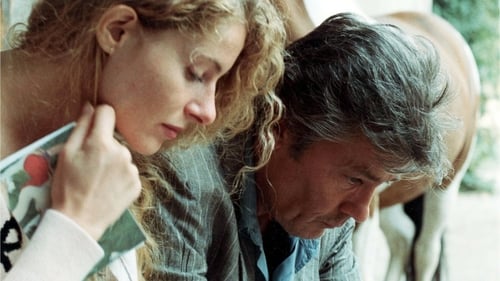
Art Direction
Богатая и красивая женщина не мешает когда-то любимому ею мужчине утопиться. Утопленник перевоплощается в себя, но на этот раз настолько же решительного и волевого, насколько раньше был рохлей и хлюпиком.

Director

Editor
From birth to death every subject remains intact. Three ages, three women. Daughter, mother, grandmother. Each of them before and after still and always. And the men too, those they meet those they love.

Writer
From birth to death every subject remains intact. Three ages, three women. Daughter, mother, grandmother. Each of them before and after still and always. And the men too, those they meet those they love.

Director
From birth to death every subject remains intact. Three ages, three women. Daughter, mother, grandmother. Each of them before and after still and always. And the men too, those they meet those they love.

Mamzelle Clio
A daring deconstruction of consumerist behavior featuring a robot and Miss Clio Darty, with a voiceover by Godard and Anne-Marie Miéville, this philosophical "report," like so many of Godard's commissions, was rejected by its funders.

Director
A daring deconstruction of consumerist behavior featuring a robot and Miss Clio Darty, with a voiceover by Godard and Anne-Marie Miéville, this philosophical "report," like so many of Godard's commissions, was rejected by its funders.

Writer
"Miéville captures a moment of disquieting intimacy amid the bustle of a parade." - BAM

Director
"Miéville captures a moment of disquieting intimacy amid the bustle of a parade." - BAM

Editor
Anne-Marie Miéville, frequent collaborator of Jean-Luc Godard, made this partner piece to Godard's own 'Je vous salue, Marie'. Marie, eleven years old, is experiencing difficult times. Her parents will separate. The perception of her universe is profoundly disturbed. This exacting portrait of a child immersed in her books, music and dancing casts a dispassionate yet touching eye on the girl's reaction to the new upheaval in her life.

Writer
Anne-Marie Miéville, frequent collaborator of Jean-Luc Godard, made this partner piece to Godard's own 'Je vous salue, Marie'. Marie, eleven years old, is experiencing difficult times. Her parents will separate. The perception of her universe is profoundly disturbed. This exacting portrait of a child immersed in her books, music and dancing casts a dispassionate yet touching eye on the girl's reaction to the new upheaval in her life.

Director
Anne-Marie Miéville, frequent collaborator of Jean-Luc Godard, made this partner piece to Godard's own 'Je vous salue, Marie'. Marie, eleven years old, is experiencing difficult times. Her parents will separate. The perception of her universe is profoundly disturbed. This exacting portrait of a child immersed in her books, music and dancing casts a dispassionate yet touching eye on the girl's reaction to the new upheaval in her life.
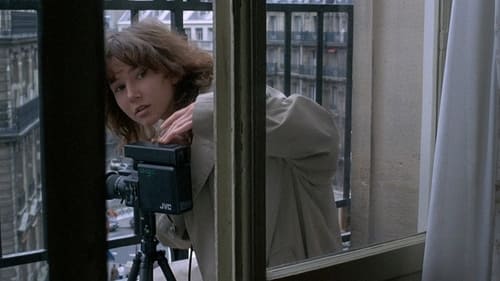
Screenplay
Два детектива расследуют убийство в одном из номеров парижской гостиницы. Тем временем в другом номере Франсуаза и Эмиль Шеналь пытаются выбить долги из Джима Фокс Варнера, тренера по боксу. Однако Джим задолжал не только им, но и мафии. Теперь все его надежды связаны с предстоящим боем, в котором участвует его ученик
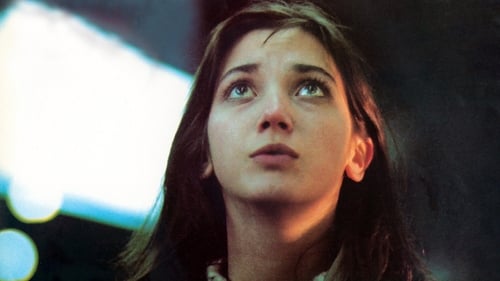
Editor
Юная Мари, дочь служащего бензоколонки, студентка, которая увлекается баскетболом, ни с кем из парней ещё не спала, хотя в неё влюблен Жозеф, молодой таксист, предлагающий руку и сердце. Но он лишь вынужден довольствоваться лицезрением обнажённого живота девушки, растущего, вопреки всем законам физиологии и медицины, буквально на глазах…
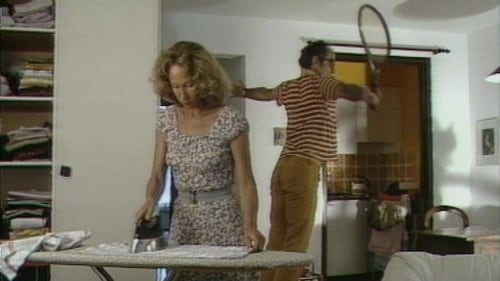
Editor
Jean-Luc Godard and Anne-Marie Miéville talk about their films, while doing everyday tasks around their house.

Writer
Jean-Luc Godard and Anne-Marie Miéville talk about their films, while doing everyday tasks around their house.

Director
Jean-Luc Godard and Anne-Marie Miéville talk about their films, while doing everyday tasks around their house.

Herself
Jean-Luc Godard and Anne-Marie Miéville talk about their films, while doing everyday tasks around their house.

Writer
Жан-Люк Годар с приступом жесточайшей депрессия лежит в больнице. Он не может написать ни строчки нового сценария. И вот, пожалуйста: приходит его племянница Кармен, которая сообщает, что вместе с друзьями намерена снимать кино. И для этого ей нужна его квартира с окнами на море. Годар не может придумать новый фильм, а Кармен - может! Что же будет дальше? Дальше - все, как в кино: ограбление банка, безумный роман, полиция, погони... О чем этот фильм? Вовсе не о Годаре и не о кино. Он о Кармен, о том, что женщина может сделать с мужчиной.

Scenario Writer
Жан-Люк Годар с приступом жесточайшей депрессия лежит в больнице. Он не может написать ни строчки нового сценария. И вот, пожалуйста: приходит его племянница Кармен, которая сообщает, что вместе с друзьями намерена снимать кино. И для этого ей нужна его квартира с окнами на море. Годар не может придумать новый фильм, а Кармен - может! Что же будет дальше? Дальше - все, как в кино: ограбление банка, безумный роман, полиция, погони... О чем этот фильм? Вовсе не о Годаре и не о кино. Он о Кармен, о том, что женщина может сделать с мужчиной.

Self
Notes on the inception and making of Hail Mary.

Editor
"One Woman, five men, five breakups." - BAM

Writer
"One Woman, five men, five breakups." - BAM

Director
"One Woman, five men, five breakups." - BAM

Script Consultant
Although there are women in the lives of the three main protagonists -- a middle-aged architect, his construction designer, and a journalist -- the women are not as crucial to the men's search for an identity as the title might suggest. When the three men run into a former professor of the architect and designer, they are inspired by his fanfare and expansive nature. Still in search of solutions to their particular problems, the men head out to visit the professor and get to the bottom of their own issues. Unfortunately, the professor turns out to be more "loco" than otherwise, and the three men watch their hopes burst like a popped balloon -- it seems like their ability to assess human character should now be added to their list of problem spots.

Still Photographer
Although there are women in the lives of the three main protagonists -- a middle-aged architect, his construction designer, and a journalist -- the women are not as crucial to the men's search for an identity as the title might suggest. When the three men run into a former professor of the architect and designer, they are inspired by his fanfare and expansive nature. Still in search of solutions to their particular problems, the men head out to visit the professor and get to the bottom of their own issues. Unfortunately, the professor turns out to be more "loco" than otherwise, and the three men watch their hopes burst like a popped balloon -- it seems like their ability to assess human character should now be added to their list of problem spots.

Self
Godard constructs a lyrical study of the cinematic and creative process by deconstructing the story of his 1982 film Passion. “I didn’t want to write the script,” he states, “I wanted to see it.” Positioning himself in a video editing suite in front of a white film screen that evokes for him the “famous blank page of Mallarmé,” Godard uses video as a sketchbook with which to reconceive the film. The result is a philosophical, often humorous rumination on the desire and labor that inform the conceptual and image making process of the cinema.
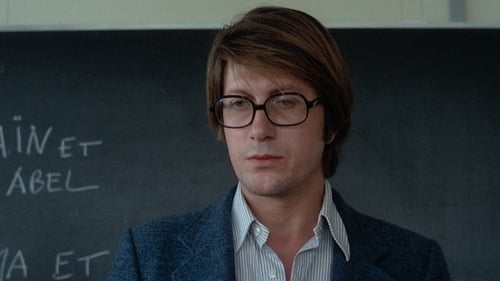
Editor
Изучение сексуальных отношений трех главных героев в разных вариантах.

Screenplay
Изучение сексуальных отношений трех главных героев в разных вариантах.

Scenario Writer
Изучение сексуальных отношений трех главных героев в разных вариантах.

Director
The parents' violence on their children. Father and mother can each have hidden violence in the family universe.
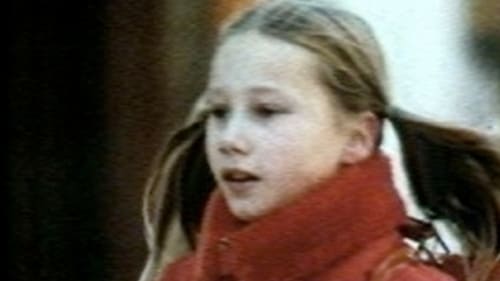
Director
In this astonishing twelve-part project for and about television — the title of which refers to a 19th-century French primer Le tour de la France par deux enfants — Godard and Miéville take a detour through the everyday lives of two children in contemporary France.

Editor
Here and Elsewhere takes its name from the contrasting footage it shows of the fedayeen and of a French family watching television at home. Originally shot by the Dziga Vertov Group as a film on Palestinian freedom fighters, Godard later reworked the material alongside Anne-Marie Miéville.

Writer
Here and Elsewhere takes its name from the contrasting footage it shows of the fedayeen and of a French family watching television at home. Originally shot by the Dziga Vertov Group as a film on Palestinian freedom fighters, Godard later reworked the material alongside Anne-Marie Miéville.

Narrator (voice)
Here and Elsewhere takes its name from the contrasting footage it shows of the fedayeen and of a French family watching television at home. Originally shot by the Dziga Vertov Group as a film on Palestinian freedom fighters, Godard later reworked the material alongside Anne-Marie Miéville.

Producer
Here and Elsewhere takes its name from the contrasting footage it shows of the fedayeen and of a French family watching television at home. Originally shot by the Dziga Vertov Group as a film on Palestinian freedom fighters, Godard later reworked the material alongside Anne-Marie Miéville.

Director
Here and Elsewhere takes its name from the contrasting footage it shows of the fedayeen and of a French family watching television at home. Originally shot by the Dziga Vertov Group as a film on Palestinian freedom fighters, Godard later reworked the material alongside Anne-Marie Miéville.
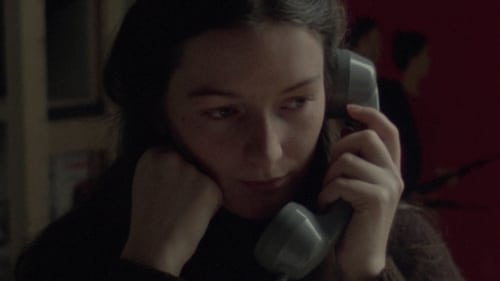
Producer
Фильм, заключённый в рамки письма издателя коммунистической газеты своему сыну. Это попытка издателя сотрудничать со своим наборщиком, их разногласия приводят к развёрнутому разговору о том, как выбираются образы средствами массовой информации, и о разнице между словами и фотографиями. Картина исследует, каким образом газеты делают смысл, и в чьих интересах они это делают.

Odette
Фильм, заключённый в рамки письма издателя коммунистической газеты своему сыну. Это попытка издателя сотрудничать со своим наборщиком, их разногласия приводят к развёрнутому разговору о том, как выбираются образы средствами массовой информации, и о разнице между словами и фотографиями. Картина исследует, каким образом газеты делают смысл, и в чьих интересах они это делают.

Writer
Фильм, заключённый в рамки письма издателя коммунистической газеты своему сыну. Это попытка издателя сотрудничать со своим наборщиком, их разногласия приводят к развёрнутому разговору о том, как выбираются образы средствами массовой информации, и о разнице между словами и фотографиями. Картина исследует, каким образом газеты делают смысл, и в чьих интересах они это делают.

Director
Фильм, заключённый в рамки письма издателя коммунистической газеты своему сыну. Это попытка издателя сотрудничать со своим наборщиком, их разногласия приводят к развёрнутому разговору о том, как выбираются образы средствами массовой информации, и о разнице между словами и фотографиями. Картина исследует, каким образом газеты делают смысл, и в чьих интересах они это делают.

Director
The title and subtitle of this French miniseries are “Six Times Two; Over and under the media”. The “six” refers to the fact that there are six episodes; the “two” has a double meaning.

The title and subtitle of this French miniseries are “Six Times Two; Over and under the media”. The “six” refers to the fact that there are six episodes; the “two” has a double meaning.
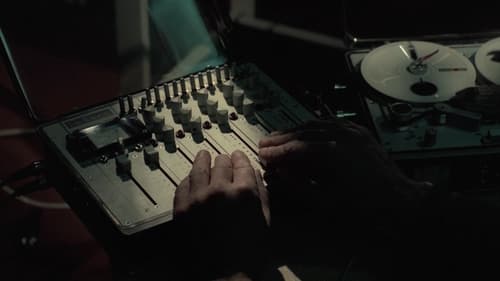
Writer
Jean-Luc Godard mixes video and film in his Grenoble studio, discussing how he secured funding for the film. The action unfolds on two monitors, as a young working-class couple lives in a claustrophobic, high-rise apartment complex and marital discord is set off by the wife’s infidelity.
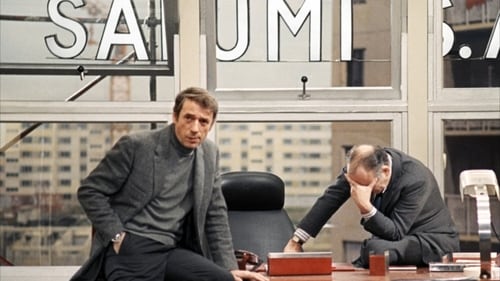
Still Photographer
События фильма разворачиваются в 1972 г. В центре сюжета— забастовка на колбасной фабрике, свидетелями которой становятся американская журналистка и ее муж, некогда популярный режиссер «новой волны». Используя многообразные приемы отстранения, Годар и Горен вскрывают структуры общества, кино, любви и революции, схематично описывая логику классовой борьбы во Франции после майских событий 1968 г.

















